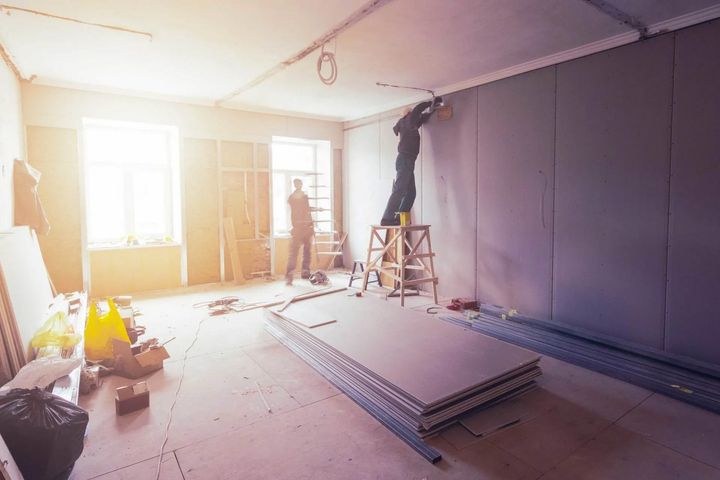820 W Sumner Ave. Indianapolis, IN 46217 | Serving Indianapolis & Surrounding Areas
Call Us! 317-787-1591

After your home is destroyed by a fire, your key goal is undoubtedly to decide how to rebuild both your physical home and your life. For most people, this decision comes down to two basic options: rebuild on the same spot or buy a home - new or used - in a different location.
There are pros and cons to both choices, so how can you find the right course? Here are a few steps to help you make this difficult decision.
1. Assess the Costs of Reconstruction
Homes that were largely or completely destroyed by fire generally need three stages of rebuilding work. First, the destroyed structure must be completely cleaned up and all materials removed. Second, the land will likely need preparation work before you can construct a new building on the site. Finally, the new home can be constructed.
The expense of demolition and site preparation vary widely based on how much work needs to be done. If the house was completely destroyed, demolition might be relatively quick and easy. But if certain parts survived the fire and will be used again, selective demolition will take more time and could cost more in labor.
In addition, reconstructing an established home can become more expensive than expected if your lot is in a neighborhood where access is limited or where you'll need to make significant changes to bring the property up to code.
2. Assess the Costs of Moving
Buying another piece of property has its own challenges, too. Most homeowners need to sell their land in order to buy new real estate. To recoup your investment, you may also need to demolish the remains of your old home and clean up the land before putting it up for sale. Then, you'd likely need to pay off any existing mortgage. If you had a large mortgage, you might not have much left over.
Whether not moving works better financially also depends on your particular situation - including the state of the real estate market, whether you want an existing home or new construction, and the costs of furnishing a different home.
3. Decide If the Land Is Worth It
Financial aspects of home ownership and the location itself are not the only elements of this decision that are important, of course. You should also ask yourself what you really want to do and why.
What makes this property important to you? Do you love the location? Is it where you raised your kids or where you want to retire? Does it have your favorite views, or is it quiet in the evenings? Is your community, family, or best friends in the area? Emotional connections are especially important after a disaster, so now may not be the time to move to new surroundings.
On the other hand, this might be your chance to change something you may have been considering for a while. Have the kids grown up, and you aren't sure that you can keep up the property during retirement? Has the neighborhood been built up and you want to leave? Would you like to be closer to work? Before you put money into reconstruction, make sure you're going to continue to be happy in this location.
4. Consult With Professionals
Before making any decisions, put a team of professionals in your camp. This team should often include an attorney to help navigate contracts and insurance issues as well as an accountant who can determine the costs of rebuilding versus moving. Certainly, you also need to consult with experienced contractors who specialize in residential demolition and construction.
Are you beginning your journey to rebuilding after a fire? Call W R Beach, Inc., today to learn more about post-disaster cleanup and removal. Let our team help your team make the best decisions for your family.
BROWSE OUR WEBSITE
CONTACT INFORMATION
820 W Sumner Ave. Indianapolis, IN 46217
317-787-2011
- Mon - Fri
- -
- Sat - Sun
- Closed
Other Times Available by Appointment
